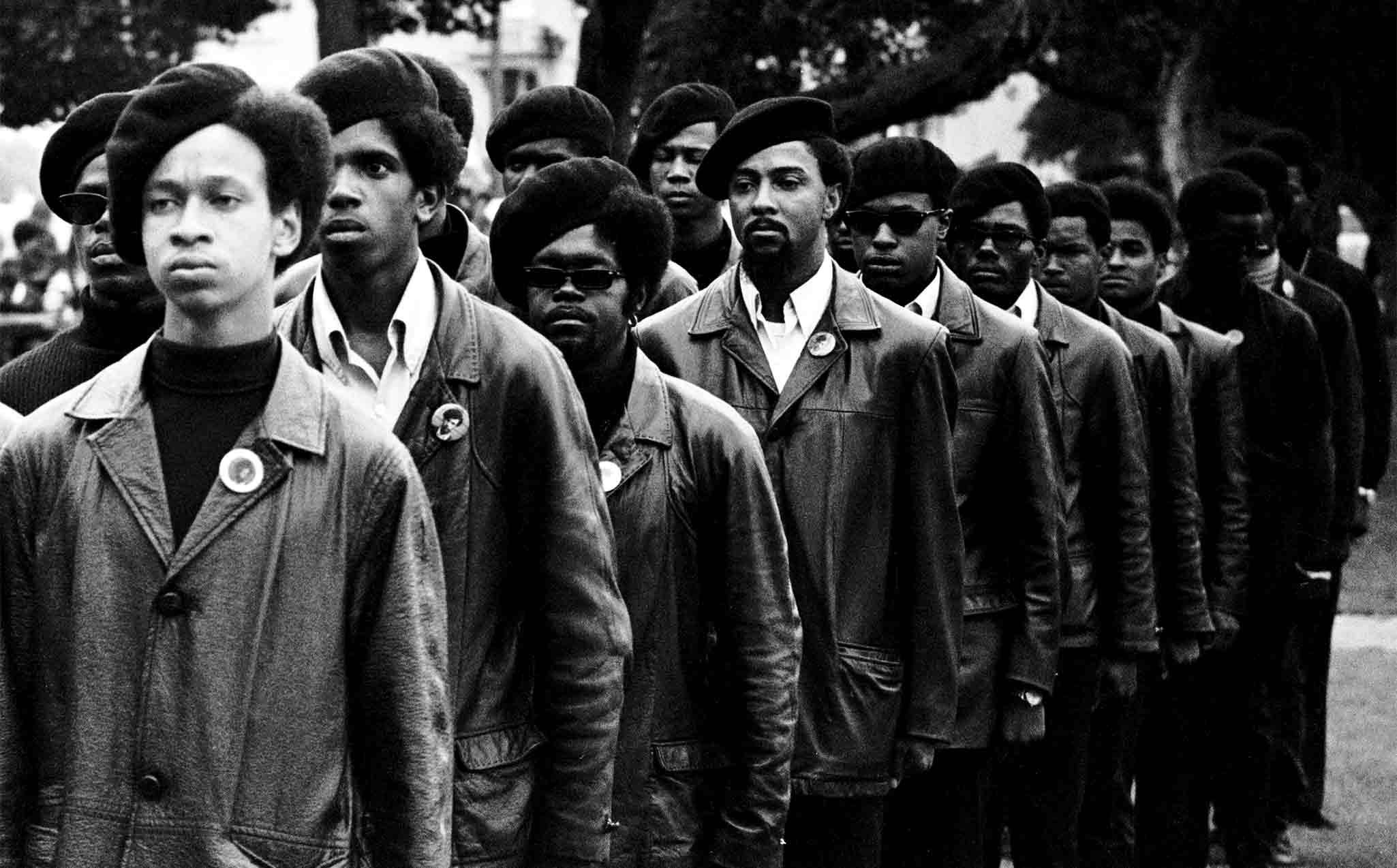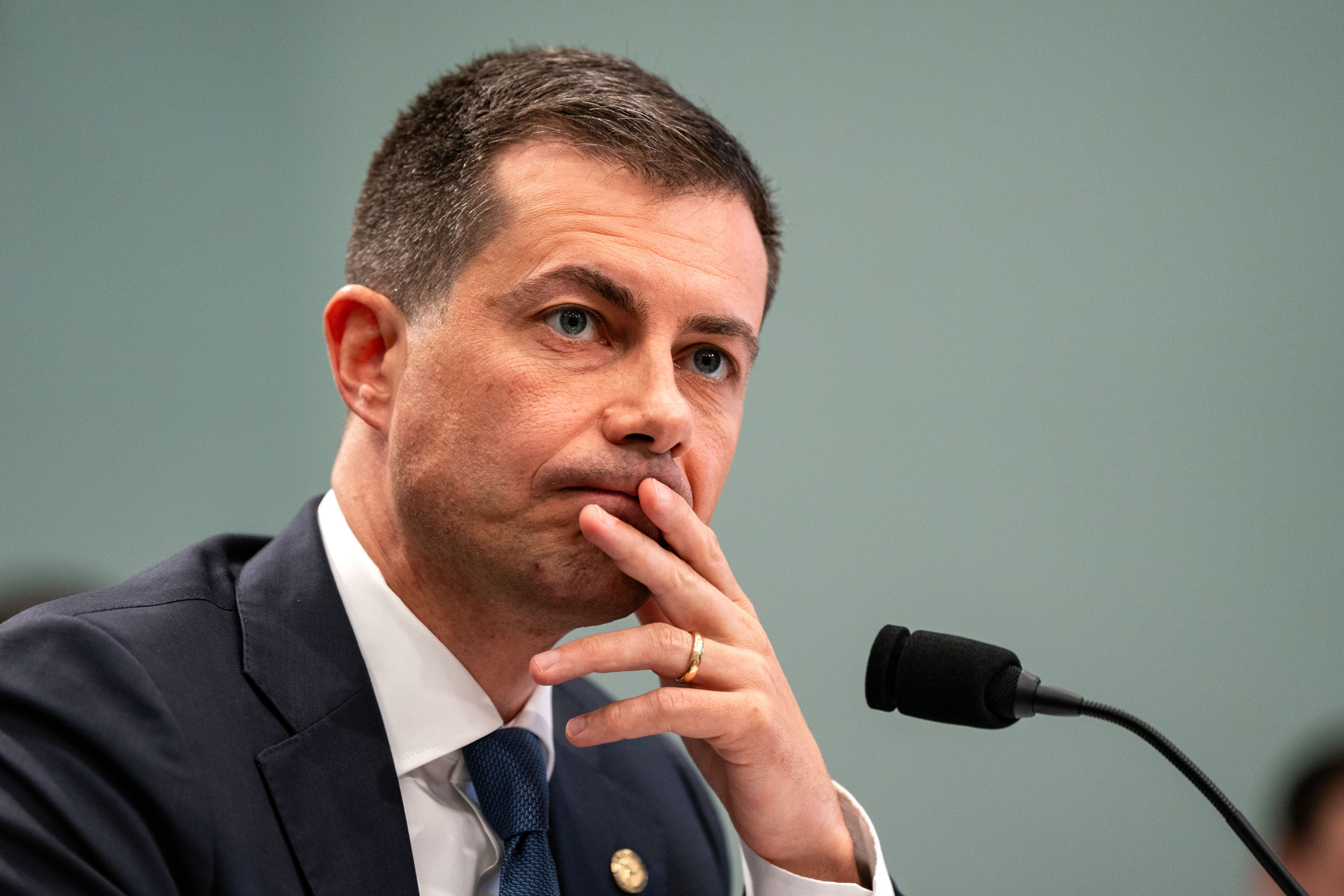
Loud, black and proud, the polemic Black Panther Party roared into existence in 1966. Helmed by civil rights agitators Huey Newton and Bobby Seale, the Panther pack was bred out of the activist hotbed of Oakland, California. Clad in distinctive leathers and black berets, the Panthers established a 10-point program, and were hell-bent on championing freedom, improving economic and educational opportunities for minorities and ceasing police brutality against African Americans.
Chapters soon began cropping up all across America, and the group garnered diverse support from the likes of the Rainbow Coalition, a convergence of the Young Lords, a left-leaning Puerto Rican organization and the Appalachian group Young Patriots. While not all supporters shared the same message, the Panthers had undeniably tapped into a very particular anxiety that wasn't unique to African Americans. The Panthers embodied the fears of an entire society more attuned to silent paranoia than open dialogue, and forced questions of racially fueled violence to the surface.
Dozens of books have analyzed the Panthers' history, but until Stanley Nelson's revelatory new PBS-funded documentary, The Black Panthers: Vanguard of the Revolution, no one had attempted to consolidate so much about the group, including historical information, archival footage and interviews. The film is dense with information, and offers a gripping ride through the picket signs and calls for policy reform that defined the 1960s. The conservationist approach in turns makes a successful case for how the Panthers' impact remains unparalleled, and continues to reverberate from political activism to pop culture today. "There would be no hip-hop without the Panthers, because they were the first to bring out the hip-hop attitudes," Nelson tells Newsweek.
Nelson says the film, which made its debut at this year's Sundance Film Festival, was in the making "all my life." The filmmaker grew up in a New York fraught with a dire housing crisis and a growing problem of police brutality. He recalls being struck at age 15 by the stark images of a buzzing revolutionary movement on the other coast: of youths hashing it out with law enforcement while a pack of stoic activists stood cross-armed and unyielding.
Vanguard of the Revolution took about seven years to make, with the bulk of that time spent sifting through archival film footage and dusty documents. While Nelson considered himself to be relatively well-versed in Panther history, he was enlightened by new information that surfaced through the filmmaking process, including the discovery of "the extent of the FBI's involvement with trying to destroy the Panthers." The film depicts the agency's attempts to disband the party and the too-close-for-comfort tabs it kept on key members, on the grounds that the group "advocated the use of violence and guerrilla tactics to overthrow the U.S. government."
Dense and dizzying, the film is both informative and serves to dispel rumors about the Panthers that have percolated since the group's heyday. "They were not anti-white, ever," Nelson says, citing one example. "We never found a statement in a film clip or anything that says anything anti-white; it was how they were portrayed." The Panthers were often the subject of unfavorable media coverage, of articles with sensationalist headlines instead of focusing on the question at the group's core: social justice.
What cements the film are one-on-one interviews, ranging from the likes of former law enforcement authorities who jousted with the Panthers to key party members, notably Kathleen Cleaver. Donning a distinctive Afro and knee-high boots, Cleaver became an iconic and pivotal force for the Panthers, serving as its first communications secretary and worked tirelessly to shed the party of its more chauvinistic qualities. She tells Newsweek that the Panthers were concerned with documenting their efforts on film from the very beginning, for both record-keeping and record-clearing purposes, and worked closely with photographers to support the movement.
"We knew that getting our information out and having people see us was a recruiting tool and—we thought—enhanced understanding of who we were because there was a dedicated campaign to twist who we were," Cleaver says. "We would say over and over again, 'We don't hate white people. We're not for violence, we're for self-defense.'"
Regardless, the party was fated to run its course quickly. Cleaver and her former husband, Eldridge Cleaver, ended up exiled in Algeria and France after a 1968 Oakland shootout left two police officers wounded and a Panther killed. Dismayed by inter-party quibbles, the Cleavers officially broke with the Panthers in 1971, and returned to the United States in 1975. She distanced herself from Eldridge, too, after he made a sharp right turn in his political leanings, which she says she had nothing to do with. Armed with her knowledge and first-hand experience, Cleaver, now a professor of law at Emory University, spoke alongside Nelson during the premiere run of Vanguard of the Revolution in January.
The film saw its theatrical release this weekend, though it screened last weekend, free of charge, in Ferguson, Missouri, where a police killing catalyzed the recent Black Lives Matter movement. It's evocative of what's perhaps most enlightening about Vanguard of the Revolution, too: While it's thrilling to watch people unite for a cause, it's disheartening to see how little has actually changed 50 years later in terms of progress, questions of pervasive racially fueled violence and police brutality. Cleaver is quick to note that while she is pleased and optimistic about the movements happening right now, there "needs to be a reorientation of attitudes towards law enforcement."
It's disturbing how some of the footage in Vanguard of the Revolution looks like it could have been shot in Baltimore in 2015. But the film aptly illuminates a critical piece of history that's more necessary than ever to contextualize, given the current conversations about race and other fraught topics. "We had never seen in America black people get up in your face" before the Panthers, Nelson says. "But now could be a good time, a time when things actually begin to change."
Uncommon Knowledge
Newsweek is committed to challenging conventional wisdom and finding connections in the search for common ground.
Newsweek is committed to challenging conventional wisdom and finding connections in the search for common ground.
About the writer
Paula Mejia is a reporter and culture writer. Her work has appeared in The Guardian, Rolling Stone, The A.V. Club, Pitchfork, ... Read more





